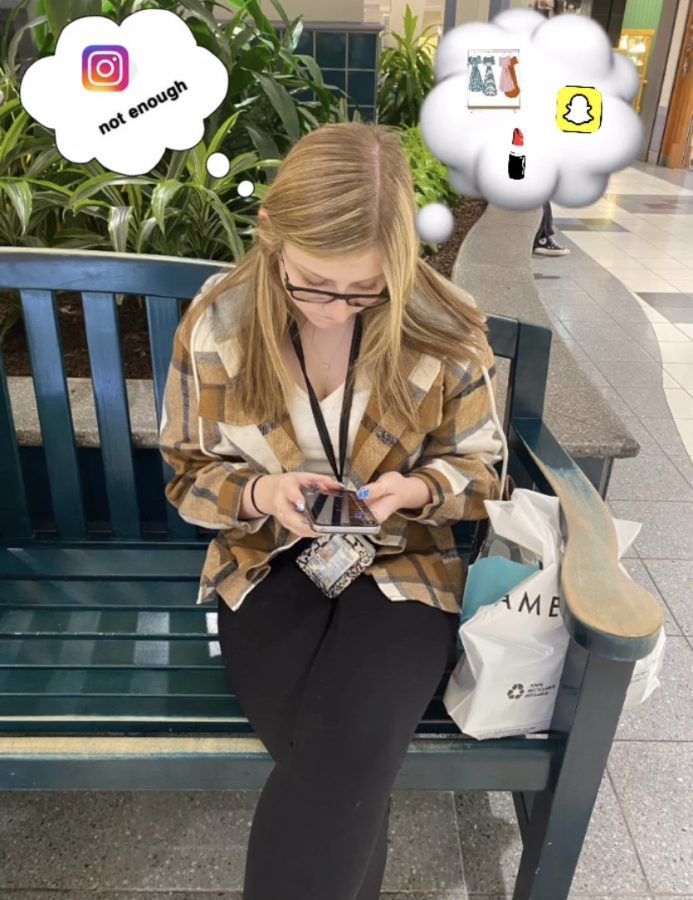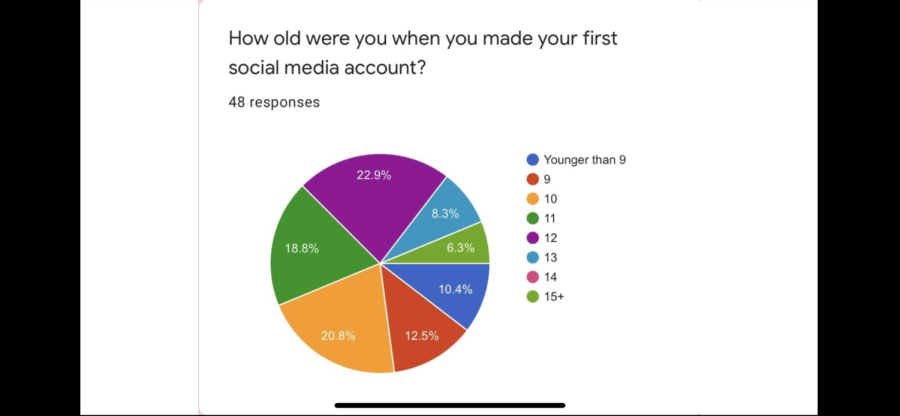Social media and self esteem
Discovering the true impact social media has on youth.

Every morning, teens across the globe open their phones and their screens are flooded with hundreds of posts portraying unreachable standards. Pictures that took hours to edit and make perfect, posted in a way that seems so effortless. Being on social media has led to so many teens struggling with their self esteem and identity.
According to a recent Norwin poll of over 40 high school students, 84 percent of students said being on social media had influenced them to change things about themselves. Social media is clearly affecting teens, but just how deep is the problem?
An American Academy of Child & Adolescent Psychiatry survey reveals that 90 percent of teens age 13-17 use social media. Social media is a huge part of life for youth nowadays, with pressures to join early. Platforms have age requirements, mostly being for users 13 and older, but those are easily bypassed.
COPPA, the Children’s Online Privacy Protection Act, fought until 2013 to have online sites have 13 & up age requirements. Is this actually enforcing anything? Who is the age minimum actually stopping?
“I am 16, and have been using social media for 7 years now,” said junior Samantha Findura. “I remember making my first accounts and just changing my birth year to be allowed.”
How do teens who aren’t active on social media feel? They see the online world from an outside perspective.
”While I don’t necessarily have a negative opinion on social media, I do feel like it is unnecessary,” said a Norwin junior, “Especially at this age, there’s no real need to use social media.”
Social media is integrated with every part of life. They have become not just for sharing a picture, but now also a way people relay information. With the whole world online, not having social media could feel isolating, a driving factor for a lot of people to create accounts. Clubs use social platforms to announce upcoming events, or just broadcast information. Sports teams post game highlights, and seeing old friends’ lives play out without the need to actually talk.
”I’ve thought about deleting my accounts before, but I thought of how much I would miss out on. Said Findura, “I would need to be caught up by friends every day, I would miss out on easy access to crucial information I would otherwise have to go to 5 different sources to find. I feel like if I hadn’t ever used social media this wouldn’t be such a problem, but it’s how I’ve lived since I was 9. I really don’t know anything different.”
Another junior feels differently, he’s never used any form of media.
”No, not really,” said a Norwin junior. “You could talk to people in person, call someone, or message them if you really needed to contact them.”
His peers, on the other hand, feel like he’s missing out. Our generation is so used to this whole other world at our fingertips, we’re usually confused when someone doesn’t also participate.
(Do you get asked about joining social media?) ”Only like everyday,” said a Norwin Junior. “Everyone is always like ‘When are you getting Snapchat?!’, but it’s just not something I care for.”
Social media has affected the way users view themselves. Seeing example after example of someone living their best life, can really have an effect after some time.
”I think wanting to change the way I look and act in order to fit in with others has been the biggest thing,” said freshman Adi Federovich. “Examples of this could range from larger things to the small details in my lifestyle.”







